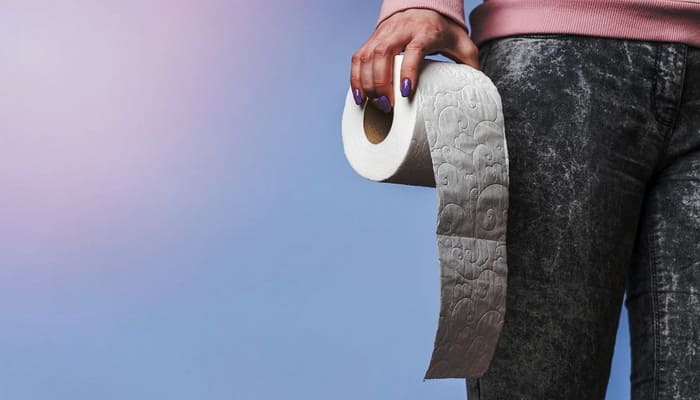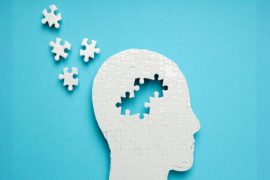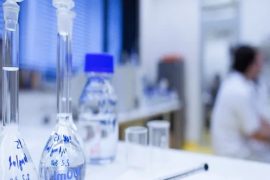Constipation or similar intestinal problems are common and can happen to anyone. This is usually the result of poor diet, dehydration, and lack of exercise. What remedies are there for intestinal issues? Be careful, not everyone is safe.
What are fecal deposits?
Fecal deposits are stool retained in the intestines that consists of solidified metabolic waste combined with mucus, intestinal bacteria, and sloughed epithelium. People who have been constipated for a long time may experience large clumps of dry, hard stool getting stuck in the rectum. The risk of chronic constipation and fecal retention increases if we lead a sedentary lifestyle or spend most of our time in bed due to illness. It may also be caused by a disease that affects the nerves leading to the intestinal muscles.
It should also be taken into account that some medications slow down the passage of stool through the intestines. These primarily include anticholinergic drugs (they impact how the nerves and muscles of the intestines interact), medications for diarrhea if taken too often, and narcotic pain relievers such as methadone, codeine, and OxyContin.
There is a difference between fecal retention and constipation. Constipation occurs when bowel movement is difficult. Persistent and untreated constipation causes stool retention that cannot be passed naturally. This happens to people who are bedridden, elderly people who cannot get out of bed, people with limited mobility, children, and patients with neuropsychiatric disorders, including Alzheimer’s disease, Parkinson’s disease and dementia.
– Fecal retention occurs as a result of hardened stool in the colon that cannot be removed by regular peristaltic activity. If this problem is not recognized and treated early, it can lead to the formation of facelifts, which are feces that resemble stones. Fecal retention is a cause of increased morbidity and a significant cause of decreased quality of life in older adults.
The condition described above requires medical intervention. We can’t handle this alone. The doctor usually recommends laxatives (orally or suppositories inserted into the rectum), gives an enema, and even, if necessary, removes the stool blockage manually (by inserting a gloved finger with lubricant into the rectum).
However, on a daily basis we mostly encounter irregular bowel movements and constipation, which cause discomfort. A healthy adult can cope with such issues with home remedies. The main thing is to drink the right amount of fluid and eat a healthy, fiber-rich diet, as well as moderate physical activity. In more complex cases, the doctor may prescribe laxatives or glycerin suppositories.
Safe ways to get rid of constipation
What advice do you give to people who often suffer from constipation? Here are four rules to follow:
- drink plenty of water and always stay hydrated;
- exercise regularly to support your intestines;
- include fiber-rich foods (whole grains, fruits, and vegetables) in your diet;
- limit sugar consumption;
- take natural laxatives such as prunes, flaxseed, herbal teas, coffee, tea (the last two drinks can stimulate the secretion of gastrin in the stomach)
- try to stress less.
Not every method is safe
Be careful with the currently fashionable methods of “cleansing” the intestines. These are unsafe actions. These unproven methods include colon lavage or colon hydrotherapy (flushing with water or other substances such as herbs or coffee).
Colon lavage is not the same as an enema administered by a doctor or nurse, which is given with special medications before some surgical procedures, before a colonoscopy, and before giving birth or in cases of severe constipation.
Deep lavage of the colon is harmful to health and can cause a number of health complications, including disruption of the intestinal microbiological balance, weakening of natural intestinal motility, which can lead to permanent disruption of the functioning of this organ and carries the risk of damage to the intestinal walls, including perforation (rupture) intestines, the risk of infection by bacteria from outside the body, which can enter the body with contaminated water or a dirty device. Moreover, frequent use of this type of treatment can lead to habitual constipation. Colon cleanses may also cause less serious side effects such as cramps, bloating, diarrhea, nausea, and vomiting.
– Colon cleansing, also called colonic irrigation, is not necessary for nonmedical purposes. This is because your digestive system and intestines independently remove waste and bacteria from the body.








